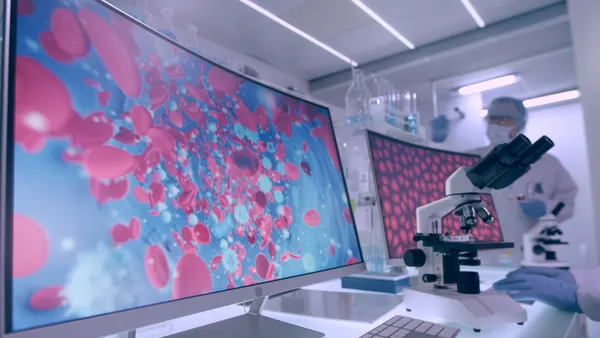Selling Skills for the Science Savvy A robust skills curriculum focuses on long-term behavior change. Such a critical transformation takes a little time and a lot of planning. specialty salesforces Christine V. Donato Senior VP Do you know Thaddeus? If you work with specialty salesforces, I bet you do. He is everywhere. Thaddeus is a seasoned representative who has been calling on specialists for years. He’s a cerebral type, intelligent and articulate. He has a strong science background; perhaps he has an advanced degree in pharmacy or was trained in clinical research. In any case, he loves the technical aspect of medicine, and he’s a quick study when it comes to a drug’s mechanism of action or the clinical trials in which the drug was studied. Thaddeus is not as interested in learning about the science of selling. He will tell you that he received comprehensive skills training early in his career, although the truth is he has forgotten much of it. But does that really matter? Thaddeus says selling to oncologists (or cardiologists or other specialists) is nothing like selling to primary-care physicians — and he’s right. But he also asserts — when management isn’t eavesdropping — that traditional selling skills have limited value in his high-level data-driven discussions with sophisticated customers. Did I mention that Thaddeus just missed his sales goal for the third year in a row? You recognize him now, don’t you? THADDEUS is The Highly Accomplished Data Dumper; Ergo, Unable to Sell. Many companies face a lineup of Thaddeus types in their specialty salesforces — representatives who pride themselves on speaking with physicians at a peer level. Yet these same salespeople cannot consistently bring in the business; chances are, they rarely ask for it. So how do organizations rebuild the oft-forgotten selling skills that are so crucial to a specialty force’s success? Start With a Cultural Shift Companies that built themselves on high-tech innovation often have a culture that values technical knowledge and expertise over “softer” skills, even though the latter close deals in business. It’s no wonder that the skills workshops created by the sales training department for the quarterly POAs are never a priority. The training department needs a voice at the top of sales management that says selling skills are central to everything the field force is trying to accomplish — as individuals and as a team. A senior-level executive needs to champion a culture change that calls for a return to sales fundamentals. Answer the Big Question: What’s In It For Me? Sales people want to be successful. Whether they define that in terms of money, recognition, promotion, or knowing they helped patients in need, they want to achieve their goals. Representatives must genuinely believe that an overhaul of their selling skills will lead to greater success. Trainers can guide them to this conviction by recreating the selling scenarios that leave many data dumpers baffled by their own failures. “If everything seemed so right, why was the outcome so wrong?” What a perfect segue to the missing link. Reintroduce and Redefine “Selling Skills” Do you really want your sales reps to close by asking the oncologist to write their product for the next 10 cancer patients he sees? The answer is no, of course not. A sophisticated audience calls for a sophisticated approach if one expects to truly educate prescribers and change behavior. But the representative still needs to close with a clear and specific call to action. The better question to consider is what the call to action should be based on where the sales rep is with this particular customer. It could be something as simple as asking the physician to review and discuss a clinical paper. The same recasting is needed for other traditional skills. Approach Skills Training Like Good Selling — With Incremental Steps Speaking of closing the call, most trainers would cringe at this close: asking a physician to champion a new product minutes after she admitted knowing little about it. It takes time to steer customers along a behavioral continuum. Smart salespeople see the progress they’re making when a physician moves from being completely unaware of a product to interested and questioning, to informed, to a trial. Trainers need to employ the same strategy. A robust skills curriculum focuses on long-term behavior change. Such a critical transformation takes a little time and a lot of planning. Guidance Needed to Succeed Specialty sales may be special in some ways, but all representatives are capable of building new skills and improving old ones. The Thaddeus look-alikes in every field force need their organizations’ guidance and encouragement to change and succeed. These hardworking, enthusiastic, and often brilliant representatives deserve nothing less. Vox Medica Inc., Philadelphia, is one of the largest independent healthcare communications companies in the United States. For more information, visit voxmedica.com. May 2007 VIEW on Sales Training
An article from


Selling Skills for the Science Savvy
Filed Under:
Commercialization









